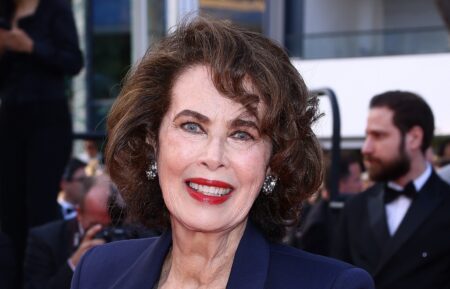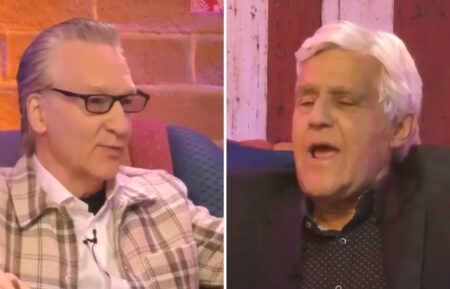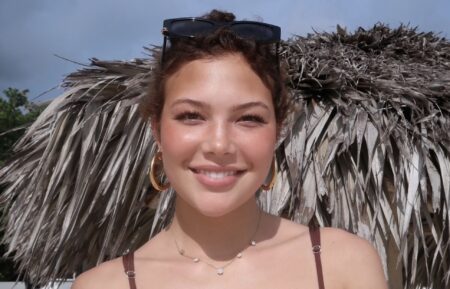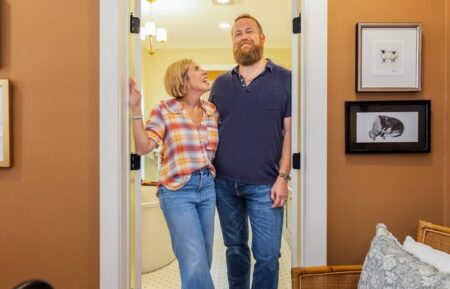Linda Ellerbee on the End of ‘Nick News’, Her Legacy and How Kids Have Changed
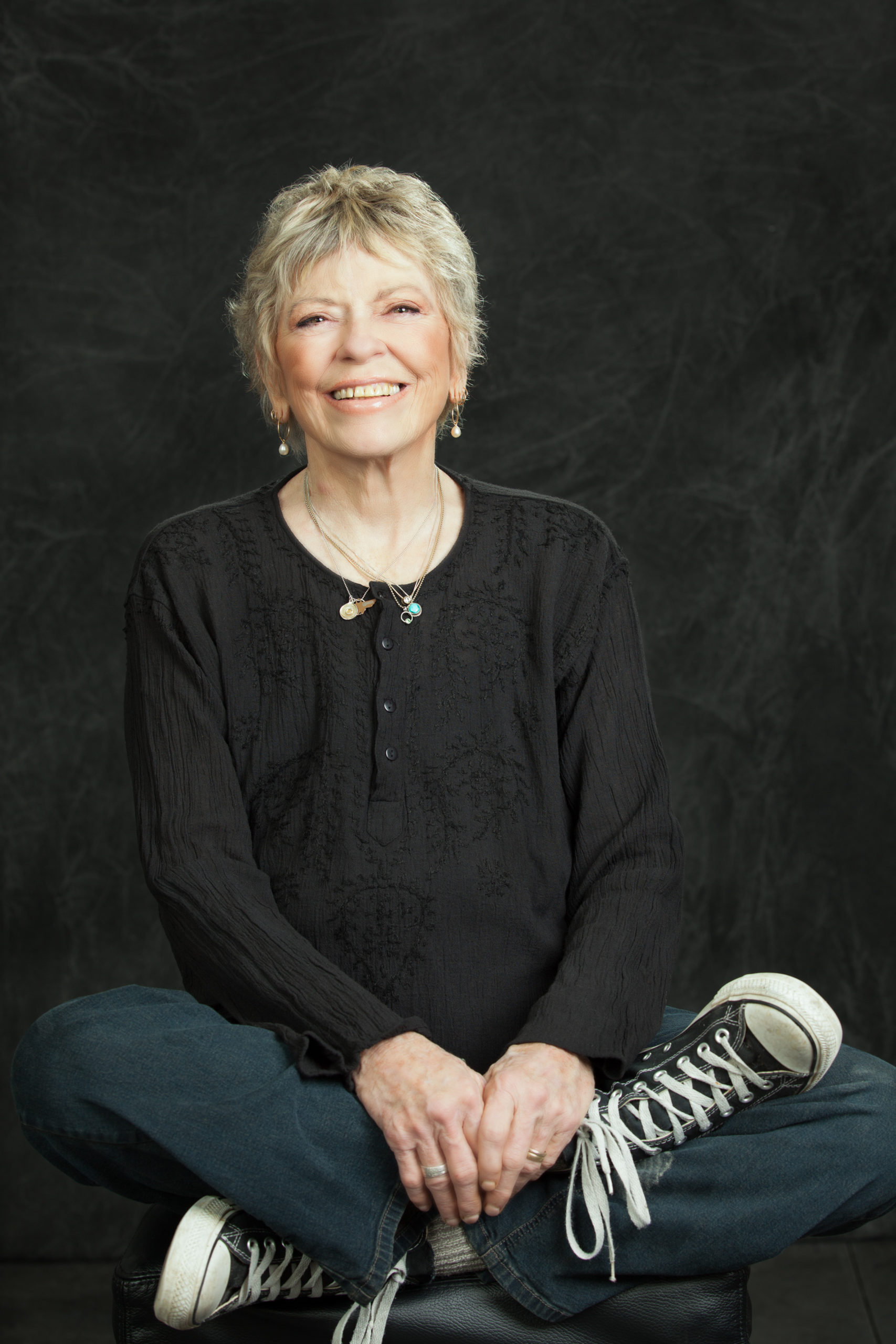
And so it goes.
Linda Ellerbee, the outspoken television journalist who later became a TV producer and the host of Nickelodeon’s long-running Nick News, announced Tuesday that she was retiring after 44 years in the biz.
Ellerbee’s swan song, the special Hello, I Must Be Going: 25 Years of Nick News with Linda Ellerbee, airs Tuesday, Dec. 15 at 8/7c. After that, she’s closing down Lucky Duck Prods., the company she founded with Rolfe Tessem in 1987.
Ellerbee spent more than a decade at NBC News, anchoring news programs like Overnight, before moving to ABC, where she co-anchored the short-lived Our World. From there, she and Tessem produced specials for ABC, CBS, HBO, PBS, Lifetime, MTV, MSNBC and others. But it was Nick News, which launched in 1991 as a special to help kids understand the War with Iraq, that Ellerbee became most identified with. The series, which tackled issues such as AIDS, cancer, alcoholism and autism, won 10 Emmys, three Peabody Awards and even the Edward R. Murrow Award for best Network News Documentary.
“She has helped multiple generations of kids understand the issues of the day, and she helped a lot of parents navigate how to talk about the tough topics, as well,” says Cyma Zarghami, President, Viacom Kids and Family Group. Nick News won’t continue as a series, but Nickelodeon says it “will continue to have a dialogue with its audience on public affairs and news issues as they arise.”
We spoke with Ellerbee about why she’s retiring, the legacy of Nick News, and how kids have changed in the 25 years she’s been listening to them.
Why the decision to retire?
ELLERBEE: The decision was made more than a year and a half ago. We went to Nickelodeon, and I said, “I’m going to be 70 and I’m going to give you 18 months’ notice, and then I’m going to retire.” I think it’s time. I’ve had a great time, and I’m lucky enough to be one of the few walking out of television without being pushed out. But I didn’t want to die in the saddle. There are other things I want to do in life. I’m not going to go lie on the beach; I’m just quitting television.
You almost fell into this second career act, doing news and documentaries geared toward kids. Are you surprised that you had such a long run doing this?
ELLERBEE: It’s so bizarre when you think about it. I had this whole long-standing reputation as this irreverent, sarcastic journalist. I don’t know what happened, but all of a sudden I turned around and I’m this raggedy-ass Big Bird trying to explain the world to children in a very sincere way [Laughs]. What happened?
Clearly it worked.
ELLERBEE: No kidding! Not only have we been on for 25 years, but for me it’s a record without getting canceled. But when you look at what’s the longest-running program on Nickelodeon, it’s not SpongeBob SquarePants, it’s not Rugrats. It’s a news show!
You did something that really no one else does for that kid demographic, at least at this level.
ELLERBEE: That’s right, and I hope that Nickelodeon will continue to listen to kids and talk to kids. They thought it was important, and I certainly think it’s important. And I know, without question, that they’ll be able to find someone younger than I am who will probably be a whole lot better at explaining the world than I was. But at least we made a good start.
Do you worry that no one else will fill the void? You never really had any competition.
ELLERBEE: In the beginning, CBS put on a kids’ news show and one other network did. Three or four started when we did, and every one of them operated on the premise that children had an attention span of 30 seconds–and therefore, everything had to be short bursts. We looked at the landscape and thought, “That’s wrong. I can’t explain the world in 30 seconds. How can I explain Bosnia in 30 seconds? The Oklahoma City bombing?” So we went the other way and made our stories overly long. We felt when kids watched grown-up news, they got a slice of the pie. You had to know what came before. But kids didn’t know that.
Now, we’re the only ones still on the air. All the other shows tanked within a year. They were being dismissive of children, saying they can’t sit still. They can, if you tell them a good story.
How have kids changed the most in the 25 years you’ve been doing this?
ELLERBEE: I’ve noticed the obvious that we’ve all noticed, which is how attached kids are to their devices. There were no devices in 1991 when we started. That’s been a huge change in how and where they receive the news. I’ve also noticed certain changes in our society over this period.
For example, back in 2002 we did our first show on gay rights. And it was a show simply about respecting other children who came from same-sex parents. There were right-wing websites set up to keep the show off the air. It ended up being a huge news story. I debated Jerry Falwell on CNN. It was huge news and objectionable to many people. Cut to 2015, which is 13 years later, we had a show called “Coming Out” in which middle school students went on the air and, uninterrupted by us, told their story of coming out. Nobody made a peep.
Have kids changed in how they embrace issues or causes?
ELLERBEE: It’s a scary world out there. And it’s not getting any less scary for kids. So in some ways, they are more interested in those things that are raising their anxiety. But there’s a lot competing for their attention these days. I won’t deny that. Our biggest concern would be, if any show wants to do what we do, that they keep in mind that the most important thing they can do is sort out the information for kids. Because it’s coming at them from all directions. Some of it is right, and some of it is not.
Which Nick News edition had the greatest impact?
ELLERBEE: We did a show in 1993 with Magic Johnson. A 6-year-old girl [with HIV] looked at the camera and said, “We just want to be treated like other people,” and it brought us all to tears. That child in that scene was so powerful that she erased the screen between her and the viewer. People who watched that show were changed by that little girl. The show was so powerful that Nightline called us the afternoon that it ran and asked if they could run the whole show that night. Nickelodeon said yes, and they did. That show was a game-changer.
You must be proud of the show’s legacy.
ELLERBEE: I’ve been fortunate enough to listen to kids for 25 years, which is very different from talking to kids. If you stop and listen to them, it becomes very apparent that they’re not dumber than we are; they’re just younger and shorter. They’re not afraid to ask the questions that you sometimes see the national press corps too afraid to ask.
Are you continuing to produce other projects through your company, Lucky Duck?
ELLERBEE: No, we’re closing the company. That’s why we made this decision 18 months ago. We wanted to tell all our employees and give them 18 months’ notice. It was a good place to work.



